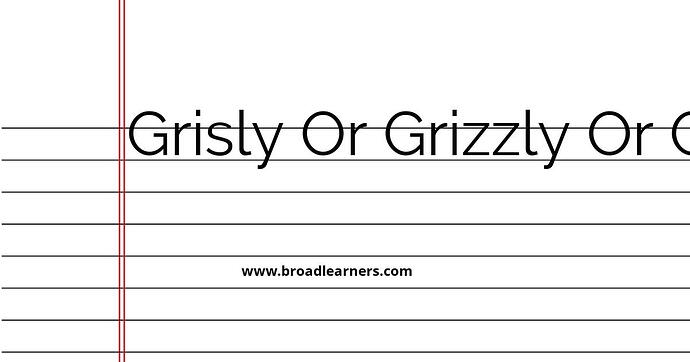'Grisly', 'grizzly', and 'grisly' are commonly confused words in English grammar. Understanding the difference between 'grisly', 'grizzly', and 'grisly' is important to use them correctly in written and spoken English.
'Grisly' is an adjective that means causing horror or disgust. It is used to describe something that is gruesome, horrifying, or macabre.
'Grizzly' is an adjective that means relating to a grizzly bear, which is a type of bear found in North America. It can also be used as a noun to refer to a grizzly bear.
'Grisly' is an adjective that means causing horror or disgust, similar to 'grisly'. However, 'grisly' is less commonly used than 'grisly'.
Let's take a closer look at the meanings and usage of 'grisly', 'grizzly', and 'grisly'.
| 'Grisly' | 'Grizzly' | 'Grisly' |
|---|---|---|
| The word 'grisly' is used to describe something that is gruesome, horrifying, or macabre. | The word 'grizzly' is used to describe or refer to a grizzly bear. | The word 'grisly' is less commonly used but has the same meaning as 'grisly'. |
|
|
|
To remember the difference between 'grisly', 'grizzly', and 'grisly', it can be helpful to remember that 'grisly' and 'grisly' both mean causing horror or disgust, while 'grizzly' is specifically related to a type of bear.
Here are some examples of correct usage:
- The detective uncovered the grisly truth about the murder. (describing something horrifying)
- We saw a grizzly bear in the national park. (referring to a type of bear)
- The horror movie had many grisly scenes. (describing something gruesome)
Remembering the correct usage of 'grisly', 'grizzly', and 'grisly' will improve your grammar and communication skills.
